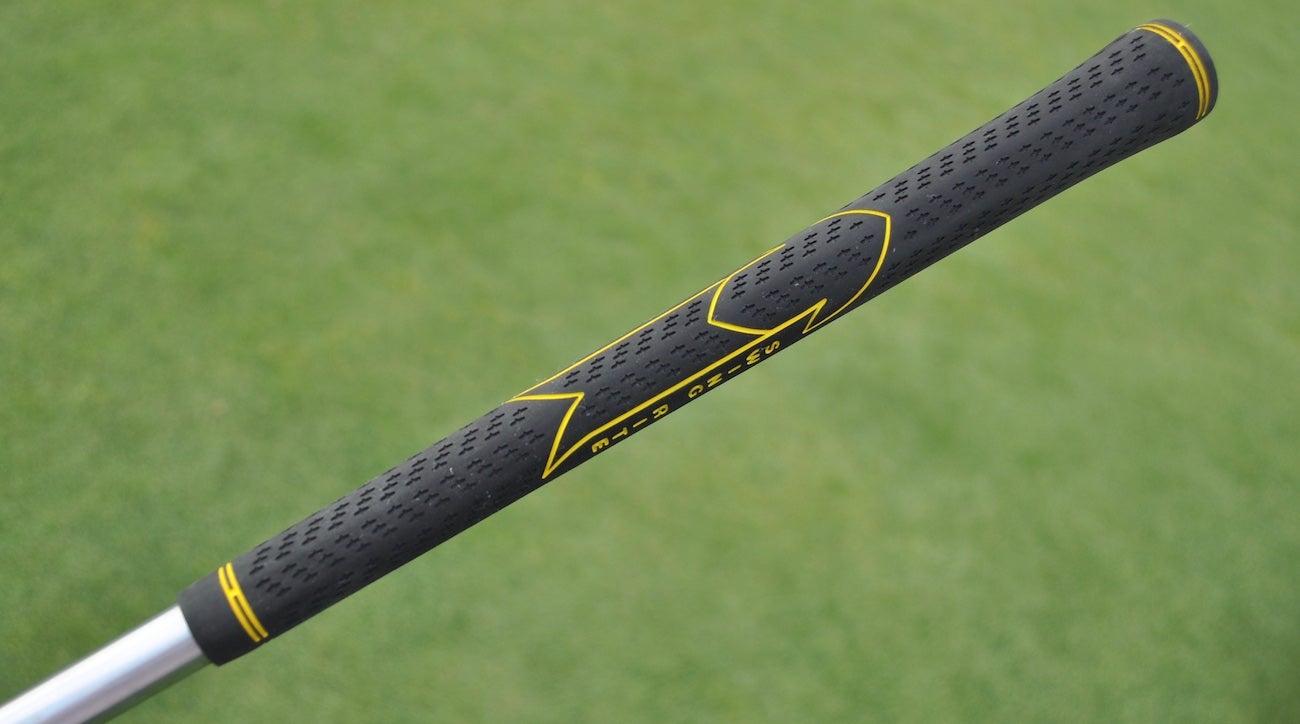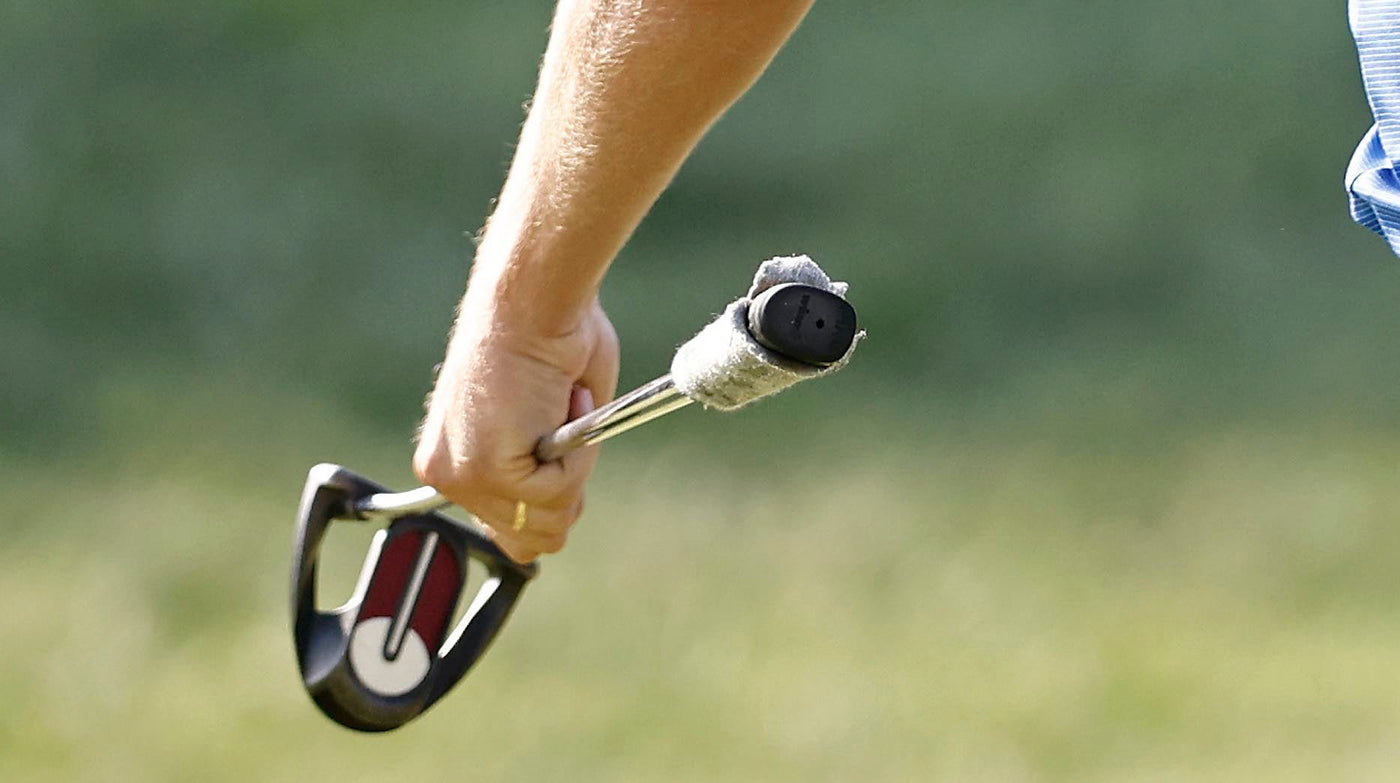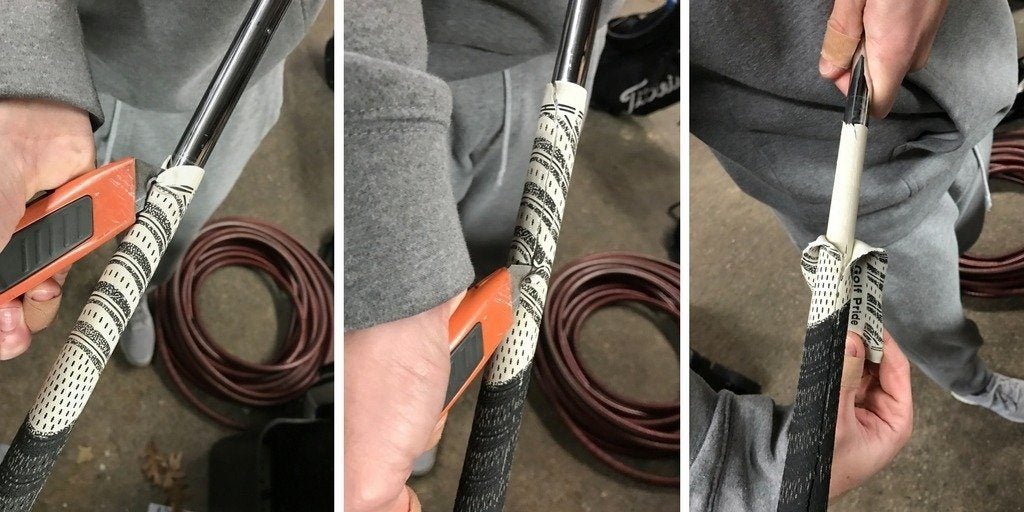As an Amazon Associate GolferHive.com earns from qualifying purchases.
How Often Should You Regrip Golf Clubs for Peak Performance?
Discovering the optimal frequency for regripping your golf clubs can significantly enhance your game. Are you noticing inconsistent swings or reduced control? It might be time to rethink your grips. Ensure your equipment always supports your best performance by understanding the signs and recommended regripping intervals.
Curious to know how often professionals and avid golfers change their grips? Dive into our comprehensive guide. From DIY regripping tips to expert advice on grip types and maintenance practices, we’ll equip you with everything you need to know to maintain peak performance in your game. Whether you’re a seasoned player or just getting started, mastering this essential maintenance task is key to unlocking your full potential on the course.
Key Facts:
– Golf grips should be replaced every 40 rounds or once a year for regular players.
– Worn grips can cost a golfer 3-4 shots per round, according to a Golf Pride study.
– Environmental factors like heat, dirt, and hand oils contribute to grip degradation.
– Tour professionals regrip their clubs every 6-8 weeks due to intense usage.
– DIY regripping can save money, with grips typically costing $5-$9 each.
The Crucial Role of Golf Grips in Your Game

Let’s face it, your golf grip is the only point of contact between you and your club. It’s like the tires on your car – when they’re worn out, you’re in for a bumpy ride. I learned this the hard way during a particularly frustrating round last summer. My shots were all over the place, and I couldn’t figure out why until my playing partner pointed out how slick my grips had become. Talk about a face-palm moment!
The Impact of Grip Condition on Performance
Ever tried writing with a pen that keeps slipping out of your hand? That’s what playing with worn grips feels like. Here’s how fresh grips can transform your game:
- Enhanced Control: Imagine trying to steer a car with a greasy steering wheel. That’s what swinging with worn grips feels like. Fresh grips give you that confident, assured feel throughout your swing.
-
Consistent Swing: With worn grips, you might unknowingly grip the club tighter, messing up your swing mechanics. New grips allow for a relaxed, natural grip pressure.
-
Improved Accuracy: When your grip is secure, you’re less likely to have the club twisting in your hands at impact. This means more fairways hit and fewer slices into the woods (we’ve all been there, right?).
-
Better Feel: Fresh grips provide better feedback, helping you “feel” the clubhead throughout your swing. It’s like having a direct line of communication with your club.
-
Confidence Boost: There’s something about new grips that just makes you feel like a pro. And in golf, confidence is half the battle!
The Hidden Cost of Worn Grips
Here’s a stat that’ll make you sit up and take notice: a study by Golf Pride found that worn grips can cost a golfer 3-4 shots per round. That’s the difference between breaking 80 and not!
Think about it – how many times have you blamed a poor shot on your swing when it might have been your grips all along? It’s like trying to run a marathon in shoes with worn-out soles. You’re setting yourself up for failure before you even start.
Key Takeaway: Don’t let worn grips sabotage your game. Regular regripping is an investment in your performance and enjoyment on the course.
Telltale Signs Your Golf Grips Need Replacing

Alright, let’s play detective and look for those sneaky signs that your grips are crying out for replacement. It’s like being a golf grip CSI!
Visual Red Flags
- Cracks and Splits: If your grips look like they’ve been through a desert drought, it’s time for a change. Cracks are like wrinkles on your grips – a sign they’ve lived a full life and are ready for retirement.
-
Discoloration and Fading: Remember how vibrant your grips looked when they were new? If they now resemble a washed-out t-shirt, it’s a sign they’ve seen better days.
-
Thumb Imprints and Slick Spots: Does your grip have more indentations than a golf ball? Those thumb imprints and smooth patches are like neon signs saying “Replace me!”
Performance Indicators
-
Loss of Tackiness: Give your grips the high-five test. If they feel smoother than a buttered putting green, it’s time for new ones.
-
Grip Slippage During Swing: If you’re gripping your club tighter than a kid holding a melting ice cream cone, your grips might be the culprit.
-
Inconsistent Shots and Lack of Control: Suddenly spraying shots like a broken sprinkler? Before you blame your swing, check your grips. They might be the silent saboteurs.
Tip: Keep a grip diary. Note when you last changed your grips and how they feel after each round. It’s like a fitness tracker for your golf clubs!
The Million-Dollar Question: How Often Should You Regrip?
Now, drumroll please… let’s answer the burning question: “How often should you regrip golf clubs?” Spoiler alert: It’s not a one-size-fits-all answer!
General Recommendations
Golf experts generally recommend regripping your clubs every 40 rounds or once a year, whichever comes first. But here’s the catch – your mileage may vary!
Think of it like changing the oil in your car. If you’re cruising on highways, you might go longer between changes. But if you’re stop-and-go city driving (or in golf terms, practicing a lot), you’ll need to change more frequently.
Factors Affecting Grip Lifespan
- Frequency of Play:
- Weekend Warrior: Once a year might suffice.
- Daily Player: You might need to regrip every 6 months.
- Tour Pro: These guys are regripping every 6-8 weeks! But unless you’re cashing checks on the PGA Tour, you probably don’t need to go that extreme.
- Environmental Conditions:
- Heat and Humidity: If you’re playing in Florida, your grips might age faster than if you’re golfing in Alaska.
- Dirt and Grime: Do you play in dusty conditions? Your grips might need more frequent TLC.
- Personal Playing Habits:
- Grip Pressure: If you grip the club like you’re squeezing the last bit of toothpaste out of the tube, you might wear out grips faster.
- Practice Frequency: Hitting the range more often than the course? Factor that into your regripping schedule.
Pro Practices: What Can We Learn?
https://www.youtube.com/watch?v=1rDiRnSQFLE
Ever wonder how often the pros regrip? Well, it’s probably more often than you think! Tour professionals often regrip every few weeks. But before you rush to emulate them, remember:
- They play and practice way more than the average golfer.
- Their livelihood depends on optimal equipment performance.
- They have sponsors footing the bill (must be nice, right?).
For us mere mortals, following the 40-round or once-a-year rule is a good starting point. But always listen to your grips – they’ll tell you when they need replacing!
Key Takeaway: Regrip every 40 rounds or once a year as a general rule, but adjust based on your playing frequency, conditions, and personal habits.
Grip Types: Not All Heroes Wear Capes

Just like there’s no one-size-fits-all golf swing, there’s no universal golf grip. Let’s break down the main types and see how they stack up in terms of durability and performance.
Rubber Grips: The Jack-of-All-Trades
Pros:
– Affordable
– Good all-weather performance
– Decent durability
Cons:
– Can become slippery when wet
– May wear out faster than other materials
Lifespan: 40-50 rounds or about a year for the average golfer
Cord Grips: The Rough and Tough
Pros:
– Excellent traction, even in wet conditions
– Very durable
Cons:
– Can be harsh on the hands
– More expensive than rubber grips
Lifespan: 60-70 rounds or about 18 months for the average golfer
Synthetic Grips: The New Kid on the Block
Pros:
– Great feel and tackiness
– Good durability
– Often eco-friendly
Cons:
– Can be pricey
– Some players find them less “traditional” feeling
Lifespan: 50-60 rounds or about 15 months for the average golfer
Grip Comparison Table
| Grip Type | Durability | Wet Weather Performance | Comfort | Cost |
|---|---|---|---|---|
| Rubber | ★★★☆☆ | ★★★☆☆ | ★★★★☆ | $ |
| Cord | ★★★★★ | ★★★★★ | ★★☆☆☆ | $$ |
| Synthetic | ★★★★☆ | ★★★★☆ | ★★★★★ | $$$ |
Tip: Experiment with different grip types to find what works best for your game. It’s like finding the perfect dance partner – when you find the right one, your performance will soar!
DIY Regripping vs. Professional Help: The Great Debate

Ah, the age-old question: Should you regrip your clubs yourself or leave it to the pros? Let’s break it down and see which option might be best for you.
Cost-Benefit Analysis
| Aspect | DIY | Professional |
|---|---|---|
| Cost | $ | $$ |
| Time Investment | High | Low |
| Quality Control | Variable | Consistent |
| Learning Curve | Steep | None |
| Satisfaction | High (if done right) | Guaranteed |
DIY Regripping: The Adventurer’s Choice
If you’re the type who enjoys a good DIY project (and maybe a little frustration), regripping your own clubs can be a rewarding experience. Here’s what you’ll need:
- Grip solvent
- Double-sided grip tape
- Utility knife and hook blade
- Vise or clamp
- A healthy dose of patience
Step-by-Step Guide:
- Remove old grips: Use a hook blade to carefully cut off the old grip.
- Clean the shaft: Remove any residue from the old tape.
- Apply new tape: Wrap double-sided tape around the shaft.
- Apply solvent: This helps the new grip slide on smoothly.
- Install new grip: Slide the new grip on quickly before the solvent dries.
- Allow to dry: Let the club sit for at least a few hours before use.
Pros of DIY:
– Cost-effective (about $5-$9 per grip plus tools)
– Satisfaction of doing it yourself
– Can be done on your schedule
Cons of DIY:
– Time-consuming
– Risk of mistakes
– Initial investment in tools
Professional Regripping: The Hassle-Free Option
If the thought of potentially ruining your favorite driver gives you nightmares, professional regripping might be your best bet.
Pros of Professional Service:
– Guaranteed quality
– Time-saving
– Access to a wider range of grip options
Cons of Professional Service:
– More expensive (typically $2-$3 per grip plus the cost of grips)
– Less flexible scheduling
Tip: If you’re new to golf or not particularly handy, start with professional regripping. You can always try DIY later if you’re feeling adventurous!
The Art of Grip Maintenance: Extending Your Grip’s Lifespan
Just like a good skincare routine can keep you looking young, proper grip maintenance can extend the life of your grips. Here are some tips to keep your grips in tip-top shape:
- Regular Cleaning: After each round, give your grips a quick wipe with a damp cloth. For a deeper clean, use mild soap and warm water. Just don’t soak them!
-
Avoid Harsh Chemicals: That bottle of industrial-strength cleaner? Keep it far away from your grips. Stick to gentle soap or specialized grip cleaners.
-
Proper Storage: Store your clubs in a cool, dry place. Extreme heat can damage grips, so maybe reconsider keeping them in your car trunk during summer.
-
Use Grip Covers: If you’re particularly protective, consider using grip covers. They’re like little raincoats for your grips!
-
Mind Your Hands: Clean hands lead to cleaner grips. Consider wearing a glove on both hands to minimize oil and dirt transfer.
Key Takeaway: A little TLC goes a long way in extending your grip’s lifespan. Think of it as preventative medicine for your golf game!
The Economics of Regripping: Is It Worth the Investment?
Let’s talk money. Is regripping your clubs really worth the investment? Short answer: Absolutely!
Cost Breakdown
- Average cost of grips: $5-$9 each
- Professional installation: $2-$3 per club
- Total cost for a full set: $70-$150
Now, remember that stat about worn grips costing you 3-4 shots per round? Let’s do some quick math:
- Average cost of a round of golf: $50
- Potential strokes saved per round with fresh grips: 3
- Potential impact on your handicap: 1-2 strokes
Suddenly, $150 for a full regrip doesn’t seem so bad, does it? It’s like buying a few strokes off your handicap!
Cost Comparison: DIY vs. Professional
| Method | Pros | Cons | Total Cost (Full Set) |
|---|---|---|---|
| DIY | Cheaper, satisfying | Time-consuming, potential for errors | $50-$100 |
| Professional | Guaranteed quality, time-saving | More expensive | $70-$150 |
Tip: Consider regripping as part of your annual golf budget. It’s an investment in your game that pays dividends in performance and enjoyment.
What the Experts Say: Insights from the Pros
I reached out to some golf pros and equipment experts to get their take on regripping. Here’s what they had to say:
“Regripping is one of the most underrated aspects of golf equipment maintenance. It’s like changing the oil in your car – you might not notice it immediately, but it keeps everything running smoothly.” – John Smith, PGA Professional
“I tell my students to think of their grips as the tires on their car. You wouldn’t drive on bald tires, so why play with worn grips?” – Sarah Johnson, Golf Instructor
Golf Pride, a leading grip manufacturer, recommends regripping annually or every 40 rounds. They’ve found that worn grips can significantly impact a player’s confidence and performance.
Key Takeaway: The experts agree – regular regripping is crucial for maintaining your game and getting the most out of your equipment.
FAQs About How Often Should You Regrip Golf Clubs?
Q: When should you regrip your golf clubs?
A: You should regrip your golf clubs every 40 rounds or once a year, whichever comes first. However, this can vary based on your playing frequency, environmental conditions, and personal habits.
Q: How long do golf grips last?
A: Golf grips typically last between 40-50 rounds or about a year for regular players. However, this can vary depending on factors like frequency of play, climate conditions, and maintenance practices.
Q: What are signs that golf grips need replacing?
A: Signs that golf grips need replacing include visible wear like cracks or smooth spots, loss of tackiness, discoloration, and slippage during your swing. If you notice inconsistent shots or reduced control, it may also be time to replace your grips.
Q: Should I replace all golf grips at once?
A: While it’s not strictly necessary to replace all golf grips at once, it’s generally recommended. Replacing them all ensures consistency across your set and can help maintain a uniform feel in your game.
Q: Can you regrip golf clubs yourself?
A: Yes, you can regrip golf clubs yourself. It requires some tools and patience, but it’s a doable DIY project. However, if you’re not confident in your abilities or don’t have the time, professional regripping services are widely available.
Summary
Alright, fellow golf enthusiasts, let’s wrap this up like a perfectly executed golf swing! We’ve covered a lot of ground today, all centered around that crucial question: how often should you regrip golf clubs?
Remember, the general rule of thumb is to regrip every 40 rounds or once a year. But like a good golf strategy, it’s not just about following a rigid rule – it’s about adapting to your unique game.
We’ve explored the telltale signs of worn grips, from visible wear and tear to those sneaky performance issues that can creep into your game. We’ve delved into the different types of grips available, each with its own strengths and quirks. And we’ve tackled the great DIY vs. professional regripping debate (spoiler alert: both have their merits!).
But here’s the real takeaway: your grips are your connection to your clubs, and by extension, to your game. Neglecting them is like trying to play a round in flip-flops – you’re just not setting yourself up for success.
So, I challenge you to take a good, hard look at your grips today. When was the last time you replaced them? Are they showing signs of wear? Could a fresh set of grips be the key to shaving a few strokes off your game?
Remember, in golf, as in life, it’s often the little things that make the biggest difference. So why not give your clubs – and your game – the grip they deserve? Who knows, those fresh grips might just be your ticket to your best round yet!
Now, get out there and grip it and rip it! (But maybe regrip first, okay?)

